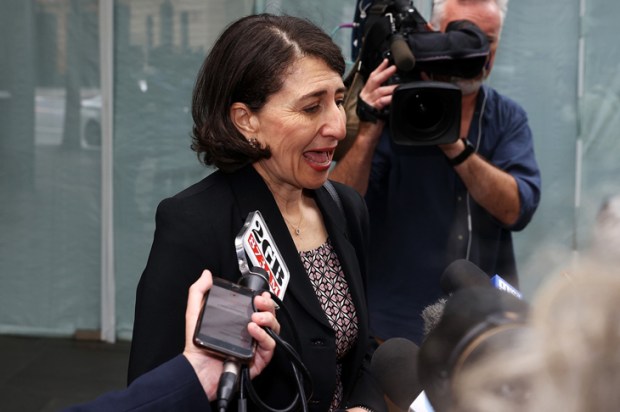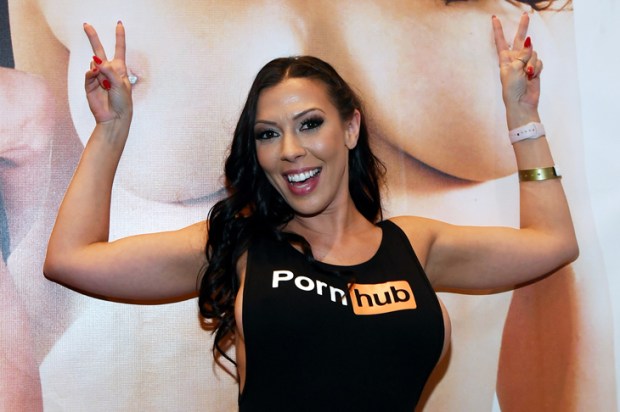It was the best news Fairfax ever published: the story of its demise.
Yet to listen to the wailing Fairfax staff and their barrackers, you would think the world was ending. The Channel Nine takeover has been described as ‘a blow to Australian democracy’ and ‘the end of Australian journalism as we know it’.
We can only hope the second point is true. Fairfax’s demise will improve our democracy, freeing Australians from the fraud of Green-Left advocacy masquerading as ‘journalism’. And let’s not forget the big winners in the new arrangements. The hospitality industry in inner-Sydney and Melbourne will thrive, as unemployed Fairfax scribes occupy their coffee shops and tofu restaurants bitching about the universe.
Australia’s fish are especially relieved, in avoiding the embarrassment of being wrapped in the pages of Fairfax Fake News. The company’s closure will also ease the pressure on psychiatric hospitals, with fewer journalists presenting for treatment of Trump Derangement Syndrome. At last, the Hitler Comparison Industry can have a day off, with the Sydney Morning Herald no longer publishing headlines such as ‘Donald Trump And Adolf Hitler Have More In Common Than Slogans’ (as it did in October 2016). Also, imagine the relief among the world’s asylum seekers. After the Tampa incident in 2001, Fairfax editors started campaigning for the abolition of offshore processing. The Rudd Government took them seriously and 2,000 boatpeople drowned, including babies and infant children. Now at least young asylum seekers have got a chance of reaching adulthood, free from Fairfax’s encouragement of people smugglers. For this alone, the end of Fairfax is a huge win for humanity.
There’s also an important lesson here for business students. Forget the baloney about a media outfit hard done by. The 177-year-old company was a victim of its own incompetence. Two decades ago Fairfax had a chance of transitioning from lucrative print advertising to online classifieds, but they blew it. The rivers of gold turned into rivers of stupidity.
Eric Beecher, a veteran of the newspaper industry, recalls fronting the Fairfax board in 2004, warning of ‘a catastrophe scenario under which the Sydney Morning Herald and the Age would lose much of their classified advertising in coming years.’ The board ignored him. According to Beecher: ‘One director in particular became quite agitated about what I was saying. “I don’t ever want anyone coming into this boardroom again”, he told his colleagues as he held up a copy of one of Fairfax’s hefty Saturday papers, “and telling us that people will buy houses or cars or look for jobs, without this”. He then dropped the lump of newsprint onto the boardroom table with a thud.’ The director was Roger Corbett, who subsequently became chairman of the board.
The Channel Nine/Fairfax announcement also flushed out the great Labor hater Paul Keating. The former PM had to toss a coin to see which outfit he despised the most. It came down on the side of Channel Nine, a legacy of the way in which 60 Minutes raked over Keating’s piggery investments in March 1999. At the time, I was the only Labor MP who defended Keating in parliament. This prompted a visit to my office by the 60 Minutes reporter Paul Lyneham, who told me I had made a big mistake. ‘We are going to put Keating in jail’, he assured me. No wonder the old clock polisher is still cranky.
Years earlier, as Treasurer in the 1980s, Keating had wanted to destroy Fairfax because of its attacks on the NSW Labor Right. He especially detested the gaggle of female investigative reporters gathered around Brian Toohey, whom he labeled ‘the Manson girls’.
Fairfax’s fate offers a glimpse of where all newspapers are headed. Public trust in journalists has collapsed, such that they now rank below used car salesmen and even politicians. Very few reporters research public policy or understand political history. They run mostly on propaganda – callow, gentrified types who take their material from the online sewer of Twitter.
Recently the editor of South Australia’s Murray Pioneer reported on the incompetence of journalism graduates applying to join his paper. In attempting quiz questions on their application form, a majority did not know the name of the Federal Treasurer or Opposition Leader. Only one could name the location of Ned Kelly’s last stand, while none could name the day on which the Melbourne Cup is run. These people have got no culture and no brains.
The quiz was not a one-off. ‘The abysmal results have been consistent (over many years) and, if anything, are slowly getting worse’, the editor wrote.
In truth, the people reading newspapers these days are smarter than the people writing in them. In the era of Facebook and Internet websites, consumers have never had so much choice and diversity of information available to them. Regulation of media ownership and content has become outdated. An open market of tens of thousands of media outlets (old and new) means that competition can sort out questions of reliability and profitability.
Instead of lifting their performance, traditional media houses such as Rupert Murdoch’s News Corp have reverted to special pleading: urging governments to heavily regulate Facebook and Google.
What a sad sight they have become. The Princes of Print have morphed into Rent-Seeking Royalty.
Got something to add? Join the discussion and comment below.
Get 10 issues for just $10
Subscribe to The Spectator Australia today for the next 10 magazine issues, plus full online access, for just $10.
You might disagree with half of it, but you’ll enjoy reading all of it. Try your first month for free, then just $2 a week for the remainder of your first year.















Comments
Don't miss out
Join the conversation with other Spectator Australia readers. Subscribe to leave a comment.
SUBSCRIBEAlready a subscriber? Log in